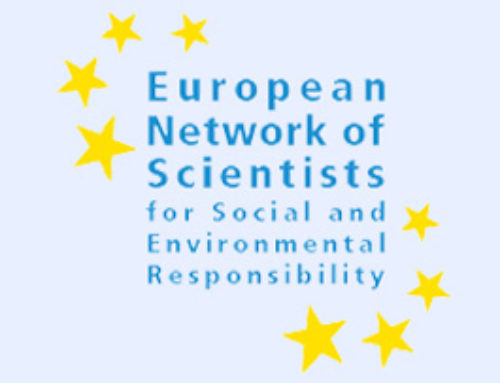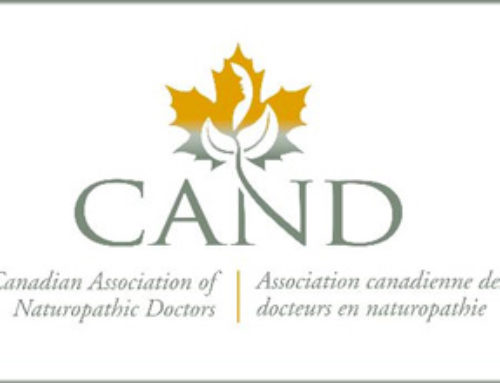
Jason Gale and Duane Stanford, bloomberg.net, 16 Sept 2011.
Nestle SA (NESN), GlaxoSmithKline Plc (GSK) and SAB Miller SA face health lobbyists next week in New York as the first United Nations General Assembly on disease since the 2001 AIDS summit tries to combat the world’s biggest killers.
Company officials join political leaders and health groups to come up with a plan to reverse the rising tide of non-communicable diseases like cancer, diabetes, and heart and lung disease that the World Health Organization says will cost the global economy more than $30 trillion over the next 20 years.
On the table are proposals to fight obesity, cut tobacco and alcohol use and expand access to lifesaving drugs in an effort to tackle unhealthy diets and lifestyles that drive three of every five deaths worldwide. At stake for the makers of snacks, drinks, cigarettes and drugs is a market with combined sales of more than $2 trillion worldwide last year.
“It’s kind of like letting Dracula advise on blood bank security,” said Jorge Alday, associate director of policy with World Lung Foundation, which lobbies for tobacco control. “There’s important expertise there, but you have to question the motive.”
The two-day summit starting Monday aims to produce a resolution for government action against physical inactivity and use of harmful food ingredients, tobacco and alcohol. The only other time the General Assembly met solely on a health topic was the AIDS meeting that led to a global fund and a 10-fold increase in financial backing for HIV, tuberculosis and malaria programs.
Channeling AIDS
The International Diabetes Federation wants similar support from governments to stop a disease it estimates costs $465 billion annually to treat. In two years, the global estimate of people with diabetes – a disease mostly associated with obesity – jumped 28 percent to 366 million, researchers said this week.
“Left unchecked, these costly diseases have the power to devour the benefits of economic gains, sending millions of people below the poverty line,” WHO Director-General Margaret Chan told health officials in Baku, Azerbaijan, on Sept. 13. “When a problem like obesity is so widespread throughout a population, the cause is not a failure of individual willpower, but a failure of political will at the highest level.”
The issue has divided political leaders, according to earlier versions of the 12-page declaration drafted Sept. 7 for debate in New York that were obtained by Bloomberg News. On one side stands the U.S. and Western Europe, home to many of the companies that make the food, alcohol and cigarettes. On the other are emerging economies such as India and Brazil that have surging rates of diabetes and heart disease attributed to the consumption and marketing of some of these companies’ products.
Kill or Change
“Companies are going to have to either kill this or change what they’re doing,” said Shiriki Kumanyika, a researcher at the University of Pennsylvania School of Medicine who will represent the International Association for the Study of Obesity at the summit. “It’s a direct affront to the current way of doing business.”
Health advocacy groups spearheaded by the NCD Alliance, an umbrella group of about 900 organizations, said the U.S. and other wealthy nations watered down the resolution language and guidelines pertaining to alcohol and tobacco use, salt intake and access to medicines. The countries also stymied efforts to describe the disease burden as an “epidemic” in case it gave nations more leverage in circumventing drug patents.
Less Salt
“We believe it was because of lobbying from the food, beverage and alcohol industry in particular,” said Ann Keeling, the International Diabetes Federation’s chief executive officer and NCD Alliance chair. “We were looking for some time-bound measures on food content – salt in particular. At one point they were in the document and now they’re not.”
Keeling’s NCD Alliance and Kumanyika’s obesity research group are among about 270 members of organizations, academia, companies and industry groups – which the UN refers to collectively as “civil society” – invited to participate in next week’s meeting, while being excluded from decision making.
Included on that list are representatives from distiller Diageo Plc (DGE) and drugmakers Sanofi, Roche Holding AG (ROG), Bayer AG (BAYN) and Novo Nordisk A/S.
“I am not averse to them lobbying,” said Robert Beaglehole, chairman of New Zealand’s Smokefree Coalition and a former director of chronic disease and health promotion at the WHO in Geneva. “I am averse to governments taking them seriously.”
Europe’s Debt
The talks have been hampered by concern from donor governments they would be asked for more aid money amid Europe’s debt crisis and a faltering U.S. economic recovery, Keeling said. Those governments favor spending on treatments for chronic diseases over policies that tackle their causes, said Boyd Swinburn, director of the WHO Collaborating Centre for Obesity Prevention at Melbourne’s Deakin University.
“They promote consumption – that’s how we get economic growth,” Swinburn said. “They have been very slow to act, abdicating the responsibility largely to individuals.”
Companies have acted faster, proposing self-regulation through “powerful lobbying activities that have been a major part of blocking good prevention policies,” Swinburn said.
The International Food & Beverage Alliance, formed in May 2008 by Kraft Foods Inc. (KFT), Coca-Cola Co., General Mills Inc. (GIS) and five other multinational companies with combined 2010 revenue of more than $350 billion, said that isn’t true. The group has made commitments to WHO’s Chan to improve diets, promote good nutrition and healthy lifestyles, and advertise products to children responsibly.
‘Collaborative Approach’
“What I’m looking for is a collaborative approach which has been pioneered in other parts of the United Nations and needs to be applied here,” said Janet Voute, co-chair of the producers’ alliance. Voute, vice president of public affairs at Vevey, Switzerland-based Nestle, is a former WHO staffer and onetime chief executive officer of the World Heart Foundation.
“An adversarial, finger-pointing, they’re-evil-we’re-good approach is outdated,” she said. “We have to tap the know-how, the core capabilities of each stakeholder.”
The NCD Alliance supported a goal proposed by a WHO panel this year to reduce deaths from cardiovascular disease, cancer, diabetes and chronic respiratory disease by 25 percent by 2025 from last year’s levels. Those targets weren’t included in a final draft of the resolution completed last week. Nor was a proposal by Norway to agree on a limit for a person’s daily salt consumption after opposition from the EU, U.S. and Canada.
‘Just Words’
“If there are no goals and targets with a date on it, there’s not going to be any accountability,” said Peter Piot, director of the London School of Hygiene & Tropical Medicine and former executive director of the Joint United Nations Programme on HIV/AIDS. “It will be just words in a UN resolution.”
Targets won’t bring about change unless they are achievable, said Jean-Luc Butel, executive vice president and group president for the international business at Medtronic Inc. (MDT), the world’s biggest maker of heart-rhythm devices.
“If it’s not realistic then nothing will be done,” Butel said. “I am also very realistic about how hard it is to have an agreement when you have so many people around the table.”
Unilever, the world’s second-biggest maker of consumer goods, supports “collaborative initiatives that encourage industry to reduce levels of salt in their products,” said Anne Heughan, external affairs director at the London- and Rotterdam- based company. “Unilever has been at the forefront of salt reduction from an industry perspective, and we continue to encourage others stakeholders to work with us in reducing salt intake.”
British Reception
The British Consul General will host a reception in New York on Sept. 19 for the International Federation of Pharmaceutical Manufacturers & Associations, a Geneva-based lobby representing research-based drugmakers. Its president, David Brennan, who also is chief executive officer at AstraZeneca Plc (AZN), will explain to guests where he believes the focus should lie in improving access to NCD medicines.
PepsiCo Inc. and the International Food & Beverage Alliance are also holding events in New York.
“By the time you’ve got the tobacco, food and pharmaceutical industries swimming around this meeting, you have a recipe for major influence because those boys come with serious checkbooks, power, organizational ability and persuasion,” Deakin University’s Swinburn said.
Alday’s New York-based World Lung Foundation is one of 135 organizations that petitioned the President of the General Assembly and the summit’s coordinators for a code of conduct on how the UN should engage with companies. The Bloomberg Family Foundation is the main donor to World Lung Foundation and supports health programs around the world. The Bloomberg foundation was set up by New York Mayor Michael Bloomberg, founder and majority owner of Bloomberg News parent Bloomberg LP.
Forced Licenses
One of the chief issues in the talks is a proposal backed by G77 countries about allowing drugs still under patent to be made by other suppliers to reduce costs for treatment of epidemics. The U.S. and EU argued for the references to be deleted because it would establish a new interpretation of a 2001 World Trade Organization declaration on Trade-Related Aspects of Intellectual Property Rights.
The EU and U.S. pushed to remove references to “epidemic” to avoid making an implicit link between the declaration and non-communicable diseases. Instead, the revised draft document describes the diseases as “a challenge of epidemic proportions.”
Asked what concern the U.S. has with the word “epidemic,” Andy Laine, a spokesman for the State Department in Washington, said he couldn’t “go into specifics” about ongoing talks.
U.S. Engagement
“The United States remains closely engaged in the negotiations and we look forward to concluding a political declaration that reflects the strong commitment of the international community to pursue the range of actions that will reduce the impact of non-communicable diseases in countries around the world,” Laine said in an e-mail.
The U.S. and EU are trying to put pressure on other governments not to issue compulsory drug licenses, said Frederick M. Abbott, a professor of international law at Florida State University College of Law in Tallahassee.
U.S. and EU drugmakers face slower revenue growth in their home markets as patents expire, allowing competitors to make cheaper versions of their best-selling medicines. They’re looking to emerging markets to expand sales, Abbott said.
“Any compromise on the issue of patents would from their standpoint begin an erosion of their earnings potential,” said Abbott, who advised South Africa when it was sued by 39 drugmakers for making cheaper AIDS medicines available for its people. Compulsory licenses pose a “significant threat to their prospects for long-term profitability on a significant scale,” he said.
To contact the reporters on this story: Jason Gale in Singapore at j.gale@bloomberg.net; Duane D. Stanford in Atlanta at dstanford2@bloomberg.net
To contact the editor responsible for this story: Bret Okeson at bokeson@bloomberg.net





Leave A Comment
You must be logged in to post a comment.